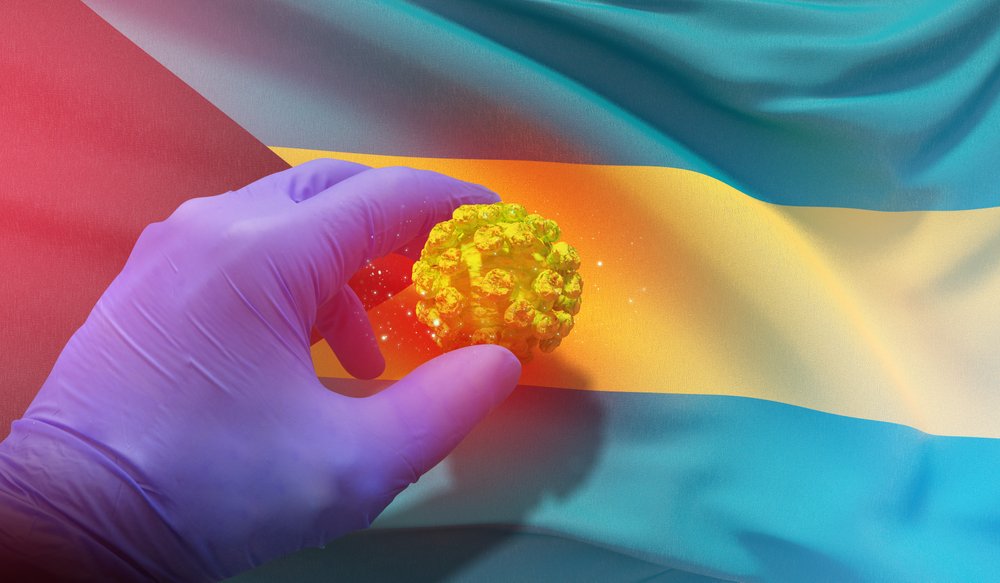NASSAU, BAHAMAS — Director of the National HIV/AIDS and Infectious Disease Programme Dr Nikkiah Forbes said if a new COVID strain were to impact The Bahamas and people let their guard down, more people will be hospitalized and “more people will die”.
Expressing concerns over the more contagious COVID variant that has spread from the United Kingdom to the United States, Forbes told Eyewitness News: “If we let down our guard with the public health precautions, that can cause spread.
“We have to remember that with this new variant, if it is more infectious, if it is more transmissible and contagious, that automatically means that more people will get sick with COVID-19.

“So, more people will be admitted to hospital; more people will die. It’s just a numbers game, so it is a concern.”
The Bahamas’ mortality rate stands at 2.2 percent.
There have been 175 confirmed deaths and 7,924 cases as of Sunday.
The new COVID variant, called B117, which was seen in the UK last September and in Colorado, California and Florida last week, is estimated between 56 and 70 percent more contagious.
But there is no evidence to-date to suggest it is more deadly or that the existing vaccines will not be as effective.
It remains unclear whether The Bahamas has recorded cases of the new variant, however, Forbes confirmed that the resources are in-country to test for subsets of the virus.
“When it first emerged, it rapidly spread and in a matter of weeks became the 60 percent circulating variant in London,” she told Eyewitness News.
“It is spreading. It has spread to 33 countries.
“…This variant, at first scientists were studying it to determine if there was anything structurally different about it that would make it more infectious, and what has been discovered, what we know so far, is that people who have this virus have more of it in their respiratory system tracts and [are] therefore able to pass it on easier and make it more infectious or more transmittable than, say, other strains.
“So, it is a concern and certainly all countries in the world have to be concerned about that with global travel; it makes the spread of infectious diseases able to potentially happen and that is something that we are already seeing happen with this new strain.”
Asked how health officials would know if the variant were impacting Bahamians, Forbes said: “There would need to be work on subtyping and there are labs that are able to do subtyping in The Bahamas, but to my knowledge up to this point — January 4th — I don’t know that variant is in The Bahamas.”
According to health experts, new variants of the virus have emerged since the outbreak of the virus in Wuhan, China, in December 2019.
Multiple COVID variants have appeared across the globe, including Canada, South Africa and Nigeria, according to the Centers for Disease Control and Prevention.
The Ministry of Health has not distinguished strains of COVID-19 infections.
Forbes was also asked if the uptick expected from holiday festivities compounded with the potential impact of a new COVID strain could be a recipe for disaster for The Bahamas.
She said: “Is it a cause for concern, definitely. The new strain, B117, the public health measures work to reduce or mitigate spread — the same measures we have been hearing about over and over from last year — wearing masks, avoiding crowds [and] close spaces, keeping a six-feet safe distance from others, trying not to touch your face — that works to not get the new strain.
“But as you identified that are events that can happen that can lead to spread of COVID-19, including this new strain that we know is more infectious…”
Last week, Consultant Physician Staff Association (CPSA) President Dr Sabriquet Pinder-Butler told Eyewitness News consultant physicians are watching with “bated breath” as to how the variant could potentially impact The Bahamas.
She said the next few weeks will be telling.
Meanwhile, COVID-19 cases in The Bahamas continue to steadily rise.
Eyewitness News reported today that cases increased around 16 percent last week compared to the week prior.
There were 69 cases between December 20, 2020 and December 26, 2020.
There were 80 cases during the period December 27, 2020 through January 2, 2021.


















